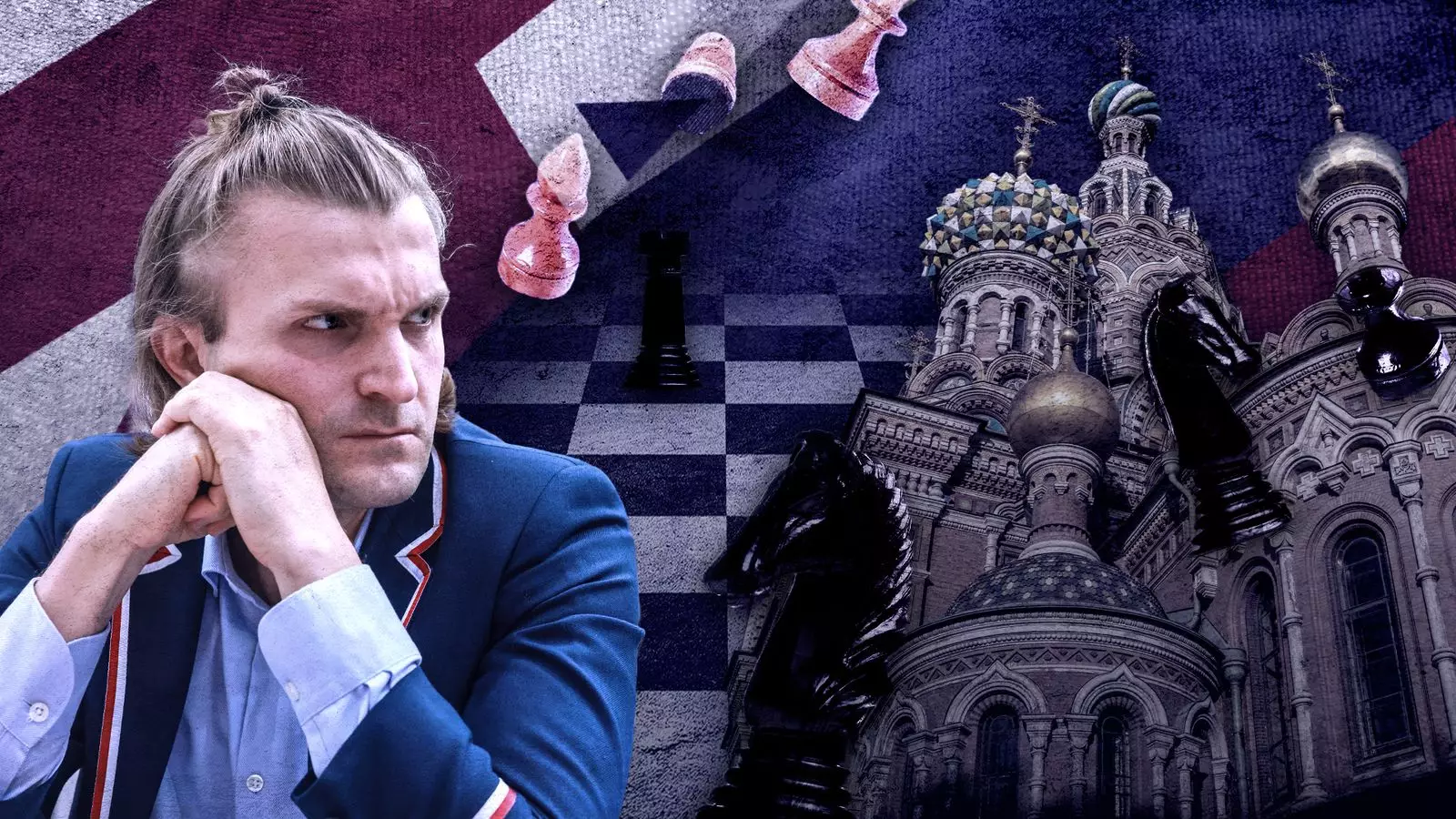In an era where global tensions are palpable, the story of Nikita Vitiugov sheds light on the intersection of personal identity, geopolitics, and the world of chess. Once regarded as a promising talent in Russia’s chess landscape, Vitiugov’s life took a dramatic turn following the invasion of Ukraine in 2022. Choosing to distance himself from the political ramifications of his homeland, he relocated to London, where he now plays for England. His experience encapsulates the struggles of athletes grappling with their loyalties amidst conflict.
Chess, a sport intertwined with national pride, has often found itself at the crossroads of political strife. The game was once famously used as a battleground for ideological supremacy during the Cold War. However, today, the stakes are different, as players like Vitiugov navigate their careers in a world where they can no longer remain indifferent to national politics. The weather in London, reminiscent of his native St. Petersburg, may provide a sense of comfort, but it pales in comparison to the bittersweet reality of having to abandon his roots.
Nikita made headlines when he publicly condemned Russia’s aggressive actions toward Ukraine, declaring on social media that Ukrainians and Russians are brothers, not enemies. This brave stance, in a country where dissent can be perilous, marked him as a significant figure among chess players who chose to speak against the war. For Vitiugov, there was no turning back; he recognized that Russia was no longer a place where he could thrive, either personally or professionally.
The aftermath of this decision forced him to confront the painful realities of his conclusions. Having been crowned the Russian national chess champion, he suddenly found himself in an ethical dilemma about representing a country engaged in conflict. The transition from being a proud Russian champion to seeking asylum in a new nation was akin to experiencing a “divorce,” as he described it. The emotional toll of leaving behind a legacy adds a layer of complexity to his narrative, making it not just a story about chess but also one of perseverance and transformation.
Settling in London has provided Nikita with a fresh start, but it has also required adaptation to an entirely new chess culture. The English Chess Federation welcomed him, allowing his transition to represent a nation involved in a forward-looking and progressive chess community. With recent changes in the rules surrounding international play, Nikita was able to become a part of the English chess scene without adhering to exorbitant financial barriers.
As he integrates into this environment, Vitiugov recently participated in the prestigious London Chess Classic. This tournament represents a significant milestone for many players but holds particular resonance for Nikita, who now competes in a city he can proudly call home. His longing for stability and personal freedom is complemented by the spirit of competition that chess embodies, making it a healing process in many ways.
The chess world may have evolved beyond its historic narrative of rivalry between Soviet and American players, yet new legacies are forming as players from various backgrounds contribute to the global chess community. When Nikita acknowledges Viktor Korchnoi as his idol, he is not merely expressing nostalgia for a bygone era; he is effectively linking his own path to that of a fellow grandmaster who faced similar adversities. Korchnoi’s defection in the 1970s resonates with Nikita’s own journey and the pressures that come with leaving behind one’s homeland.
In recent months, Vitiugov’s presence on the English chess scene has galvanized younger generations, and his insights and expertise are crucial in nurturing emerging talents. His story serves not only as an inspiration but also as a reminder of the potential for resilience amidst challenges. As he trains the next wave of chess players in England, the narrative of a Russian grandmaster nurturing English chess enriches the sport and fosters a new sense of unity.
With the British championships on the horizon, fans and pundits alike are eager to see what the future holds for Nikita and his adopted team. The prospect of a Russian player potentially claiming the title of king of English chess symbolizes a unique evolution in the game, shedding light on themes of identity, loyalty, and personal struggle. Through his journey, Vitiugov not only redefines his narrative but enriches the larger chess community as he navigates this complex tapestry of game and geopolitics.
Ultimately, the story of Nikita Vitiugov illustrates the transformative power of resilience and commitment in the face of adversity. It serves as a poignant reminder that while the chessboard may symbolize competition, it can also be a platform for deeper conversations around identity, unity, and the shared human experience in a world marked by conflict.



Leave a Reply